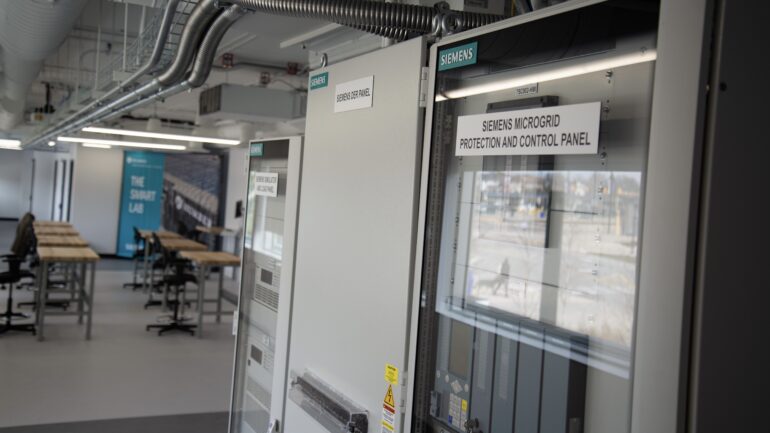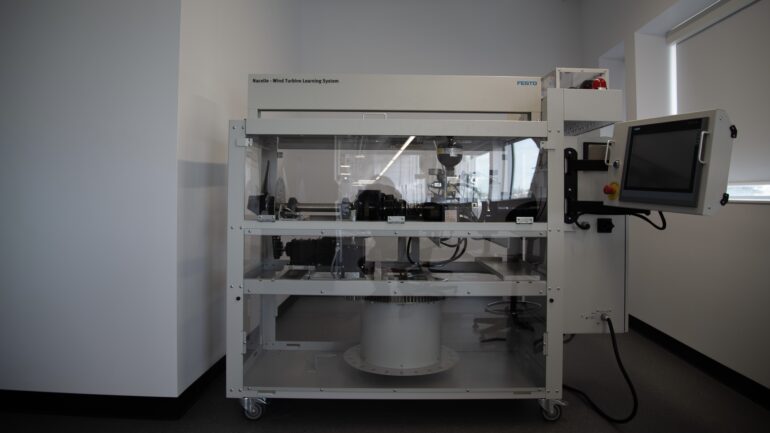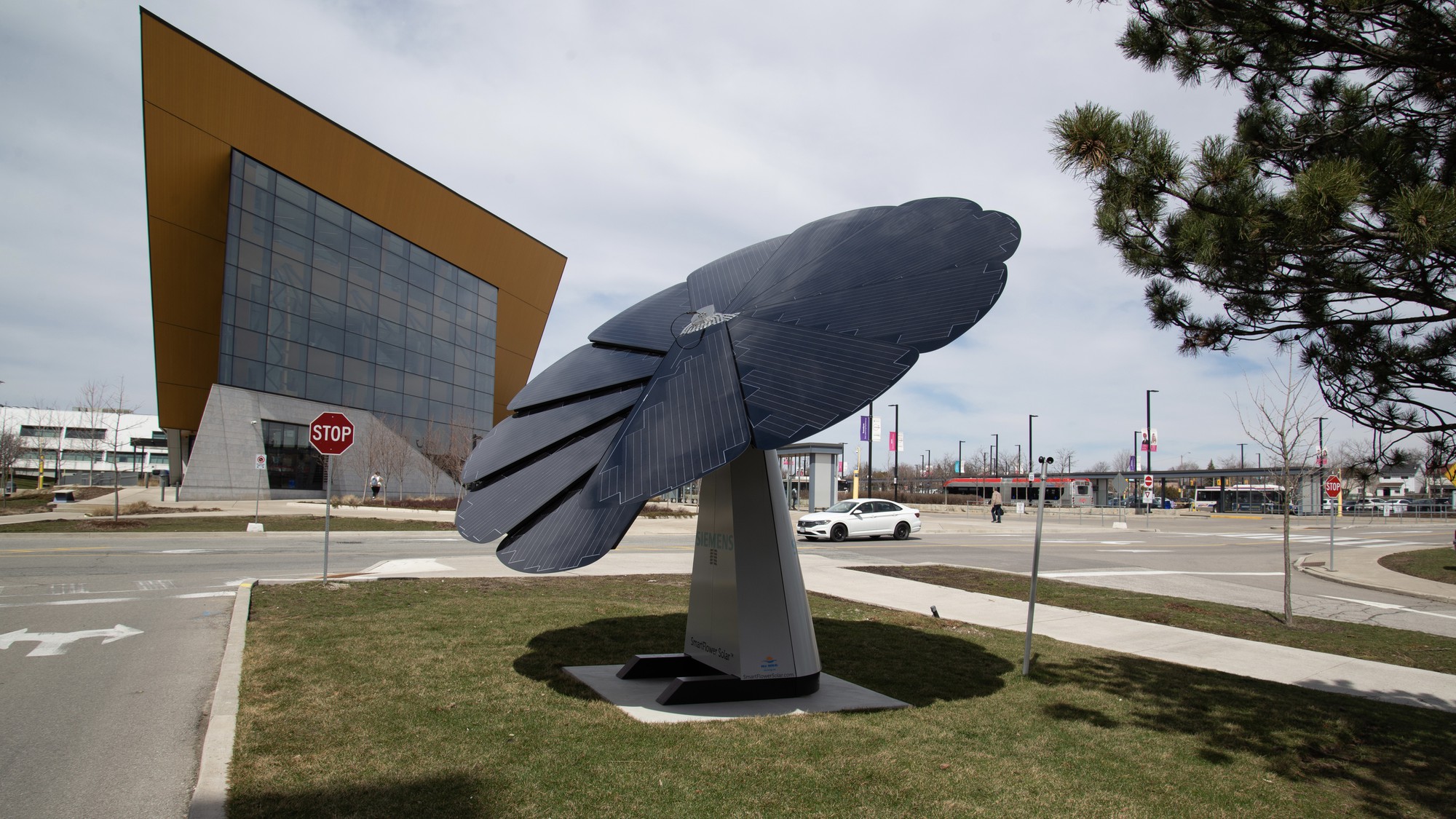Humber College partnered with Siemens Canada, unveiling a sustainable electric micro-grid and a SMART lab where students and external operators can learn to operate technology of the future.
“If we want to have more micro-grids, we should have more operators of micro-grids, and these people should have a safe training space to receive their hands-on practice of this system,” said Shaun Ghafari, Humber Associate Dean of Applied Sciences.
Micro-grids, unlike standard grids, are resilient against natural disasters and cyber attacks.
They are able to disconnect from the main grid, or “islanding”, to continue producing power during outages.
By obtaining most of its energy via solar panels and having more control over how that energy is utilized/consumed, micro-grids ensure power is seldomly wasted.
“It is the future of clean energy,” Ghafari said.
The micro-grid is a step towards decarbonization and energy flexibility. It is able to preemptively prepare for blackouts by cutting power to less vital sources and store energy, similar to a backup generator.
Ghafari said within some communities, micro-grids can stay operational for three days during outages.

Within the SMART lab, this is the motherboard of the microgrid. Humbers smartflower, solar panels and EV chargers are controllable from this system. Photo credit: Daniel Lonic
The Ontario Government provided funding for this project in 2022. From there, Ghafari said it truly took a village to come to this point.
He said one of the strongest advocates for the project Gina Antonacci, the college’s Senior Vice President Academic. She supported this project from the day first, Ghafari said.
With this partnership Humber also announced the solar powered Smartflower, getting its name from the plant, because its solar panels follow the sun and opens during the day and closes at night.
The Smartflower produces 40 per cent more electricity in comparison to standard panels and can be controlled from the SMART lab.
These additions are only phase one of this project, Ghafari said.
“We are going to add a sort of course, or a series of courses in our electrical engineering program, but that’s phase two of this project,” he said. “The first phase is to develop an operational format.”
Khalid Ibrahim, a Humber technologist who assisted with the SMART lab’s creation, said the micro-grid training at Humber will stretch beyond just its students.
“You don’t have to be a Humber grad or Humber student, you can just come in and take a course in micro-grids,” Ibrahim said.
The course will be taught by Humber faculty and students would become micro-grid certified, he said.

This is a wind turbine simulator within Humbers SMART lab. Students can program wind speeds to determine the amount of power it would provide. Photo credit: Daniel Lonic
College faculty will receive their two day micro-grid training course from Siemens during the last week of April. This is in preparation to create and teach curriculum to future students.
“If Siemens or Humber thinks that this is a good plan and the industry is actually going towards this direction with micro-grids, I think you’re going to see more micro-grids and labs in Humber,” Ibrahim said.
Ibrahim will be responsible for overseeing the lab and any maintenance now that it’s operational.
During Humber’s micro-grid opening tour, one student was invited to provide a speech and see the lab in action. Ashley Nollner, an electrical engineering, technology and control systems student, stuck out from the crowd through her previous involvement in Skills Ontario and her co-op placement with Peel Regional Police.
“I’m happy I got to talk and kind of meet everyone,” Nollner said. “I got to meet the president of Siemens, the vice president, and then I also got to meet the Vice President of Humber.
“So yeah, it was nice getting some future connections,” she said.
Nollner initially entered the program after her father’s recommendation on a whim. She now can’t wait to enter the field and continue to work with sustainable energy.
It was through Humber that Nollner discovered an interest in micro-grid technology. She hopes to be able to learn more about micro-grids once the course becomes available at the college.

